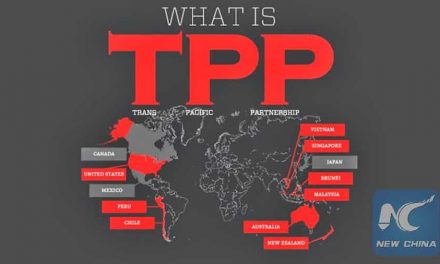The TPP: A potential corporate coup d’état
October 6, 2015
Toronto (Oct. 5, 2015) –The Conservative government, and 11 other Pacific rim countries have signed a controversial and sweeping trade and investment agreement that covers 40% of the world economy. By signing this deeply flawed agreement, Trans-Pacific Partnership (TPP), the Canadian government will cede further control over our food production, access to medicines, health care and the internet, and environment and labour regulations to transnational corporations. This will destroy jobs, increase privatization and strip governments of their power to regulate in the public interest.
The TPP includes anti-democratic investor-state dispute settlement provisions that give multinational corporations the ability to sue national governments over regulations and policies they don’t like and put the public interest at risk. This represents a massive transfer of power to the corporate sector.
Common Frontiers is alarmed by the fact that in spite of widespread civil society opposition to this deal, the conservative government has gone ahead and signed it. According to Doctors Without Borders “the TPP will still go down in history as the worst trade agreement for access to medicines” with enormous impacts on public health. Unifor, Canada’s largest private sector union has made it clear that the deal will threaten more than 26,000 Canadian auto jobs in both assembling and parts-making.
Until we have a genuine and public debate on the impacts of the TPP, Canadians should pressure the leaders of all political parties to commit to a genuine and broad-based public debate on the impact of the TPP, prior to it being presented to Parliament for ratification.
For more information contact:
Raul Burbano- Program Director – Common Frontiers 416 522-8615, comfront@web.ca
ADDITIONAL RESOURCES
UNIFOR has a series of articles on the impact of the TPP:
The TPP and auto jobs fact sheet
A TPP Backgrounder
Sample Resolution on TPP and auto workers
Searching for Stable Ground: Securing the Future of Canada’s Auto Industry




